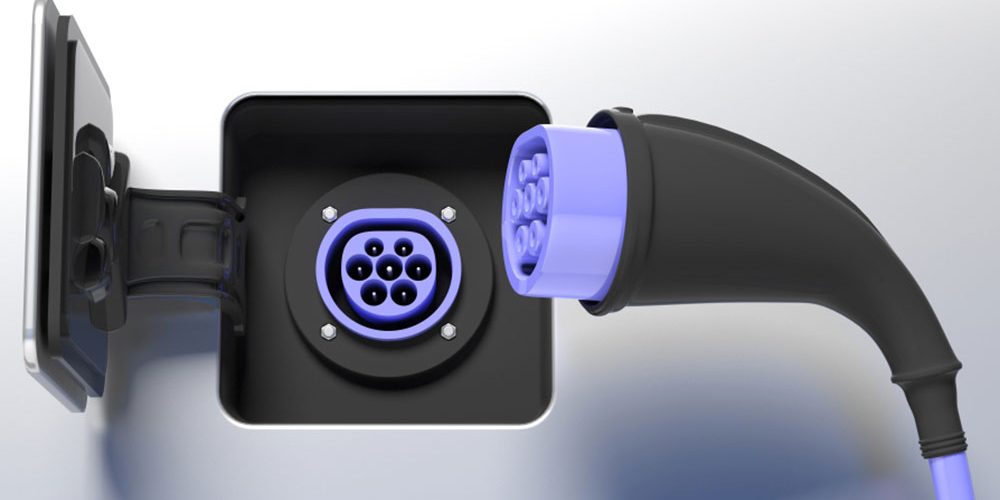A lot of people are apprehensive about choosing to drive an electric car because they are not sure about how viable it is. Most of their concerns are about charging their electric vehicle, such as how to charge an EV, is it cost-effective, are their enough charging stations, etc?
This is why we at GKL Electric decided to compile this Electric Vehicle Charging Guide. We have tried to answer all the frequently asked questions about charging your EV.
How Much Does it Cost to Charge Your EV at Home?
This is a great time to make the switch to electric cars. The government has set up a grant for home charge points for your EV and has announced new requirements for these charge points. This means that you get a subsidy for installing an EV charger at home.
In addition to the saving you make on the charge point installation, you also get better ‘fuel efficiency’ with your electric vehicle. A typical EV with a 60kWh battery can be fully charged at about £8.40, giving you a range of about 200 miles.
As of now, your home charger will either be rated 3kW or 7kW. The higher-powered charger will cost more but will charge twice as fast as the lower-powered one. The obvious caveat is that you would need to have off-street parking to make the most of home charging.
How Much Does it Cost to Charge Your EV at Work?
That depends on your employer. Several companies want to incentivise plug-in vehicles as it provides tax benefits and lower BiK rates. They may do so by offering free charging, while others may have a time-based paid tariff. If it is paid, the rates will usually be kept low.
Depending on what your company’s policy is towards green vehicles, you could find a 7kWh or a 22kWh charge point at work.
How Viable is Public Charging for Your EV?
If you were concerned about not finding a public charge point while on a journey, you’ll be relieved to know that there are over 17,000 public charging points across the countries. What’s more, the number will grow, with all large petrol stations and motorway services being legally required to provide charging points.
The thing is, most people will charge their EVs and PHEVs at home at night. Even if you do not have off-street parking, certain councils are experimenting with other methods, including converting lampposts into EV chargers.
This means that unless you are going on a long journey, you will only need public charging points for topping up your battery instead of ‘fully charging’. As a result, you will not spend a lot of time or money at public charging stations.
(If you want to make sure you have charging stations along your journey, check out Zap-map, a service that tells you where the charging stations are.)
To put things in perspective, Ecotricity, the company that provides all motorway charging points in the UK, will charge you around £6 for a 45-minute recharge with a rapid charger. This will be enough to charge most green cars to about 80%, even with a drained battery.
 Why charge my EV only 80%?
Why charge my EV only 80%?
Because 80% is supposed to be the optimal charge level to make your car battery last longer. Fully charging reduces battery life, according to experts. This is why most rapid charging stations power down once the battery reaches 80%, to protect it and ensure a longer life.
Also, it takes much longer to charge the battery from 80 to 100% than from 0 to 80%, which is why that is considered standard.
What Are the Different Types of Chargers?
Chargers can be classified as Rapid, Fast, or Slow.
- Slow chargers are perfect for overnight charging as they can get the battery from 0 to 80% in 6 to 12 hours.
- Fast chargers give you 7kWh to 22kWh of power, allowing you to fully charge your EV in around 3-4 hours.
- Rapid chargers, as the name suggests, charge your plug-in vehicle really quickly. These chargers come as either AC (alternating current) or DC (direct current). Rapid AC chargers give 43kWh while DC chargers give at least 50kWh of power. Either of these will charge the green cars commonly available to 80% in about 30 to 60 minutes.
Types of Electric Car Plugs or Connector Types
Type 1
 A 5-pin plug, it is not a common connector type, which is why you can get a cable that will connect this type of charger to a more common Type 2 cable for charging.
A 5-pin plug, it is not a common connector type, which is why you can get a cable that will connect this type of charger to a more common Type 2 cable for charging.
Type 2
 This is a 7-pin plug, also known as Mennekes for the company that invented it. It is the most common charging connector for EVs, with even Teslas using it for regular charging.
This is a 7-pin plug, also known as Mennekes for the company that invented it. It is the most common charging connector for EVs, with even Teslas using it for regular charging.
CCS
 CCS, or Combined Charging System, is a 5-pin plug usually used by German car manufacturers. It is not as common in the UK as Type 2.
CCS, or Combined Charging System, is a 5-pin plug usually used by German car manufacturers. It is not as common in the UK as Type 2.
CHAdeMO
 Developed by a consortium of Japanese car manufacturers, this 10-pin plug is very popular in the country for rapid charging.
Developed by a consortium of Japanese car manufacturers, this 10-pin plug is very popular in the country for rapid charging.
For rapid charging, you will usually get:
- CHAdeMo 50kWh DC,
- CCS 50kWh DC,
- Type 2 43 kWh AC, and
- Type 2 120kWh DC for Teslas
Fast chargers include:
- Type 2 7-22kWh AC plugs,
- Type 1 7kWh AC, or
- Commando (a 3-pin socket) 7-22kWh AC charger
Slow charging can be done with a standard 3-pin plug in a 3-pin socket charging with 3kWh on AC, but it is not the best way to go. It takes longer as it is not specially adapted for EVs. Other slow charging plugs commonly used are:
- Type 1 3kW AC,
- Type 2 3kWh AC, and
- Commando 3kWh AC
As you can see, electric vehicle charging is not very expensive or difficult. With proper planning and regular home charging, you can use your green car every day for short commutes as well as for longer journeys.
Further Reading
If you want to know more about what driving an electric car entails, here are some useful links.
- The government has announced new requirements for electric charge-points
- Electric Vehicle Home Charge Scheme
- A guide to the Workplace Charging Scheme for electric vehicles
If this information has inspired you to try out an electric vehicle, get in touch with us at GKL Electric. We have a variety of green cars that you can lease. Whether it is advice on EV charging or booking a test drive, email us or give us a call on 01844 852252.








